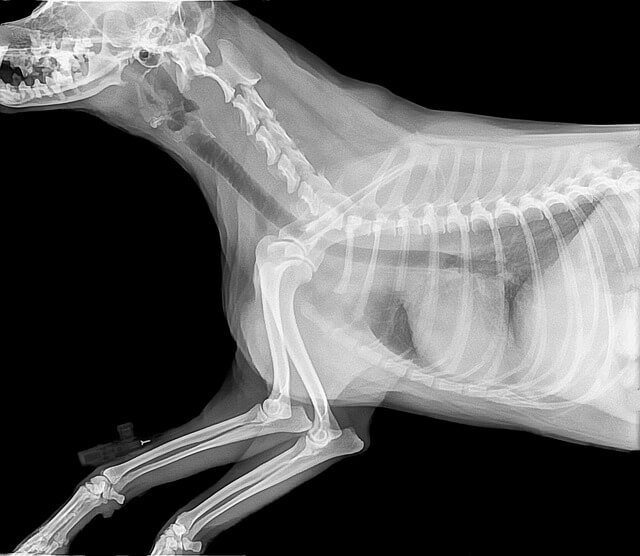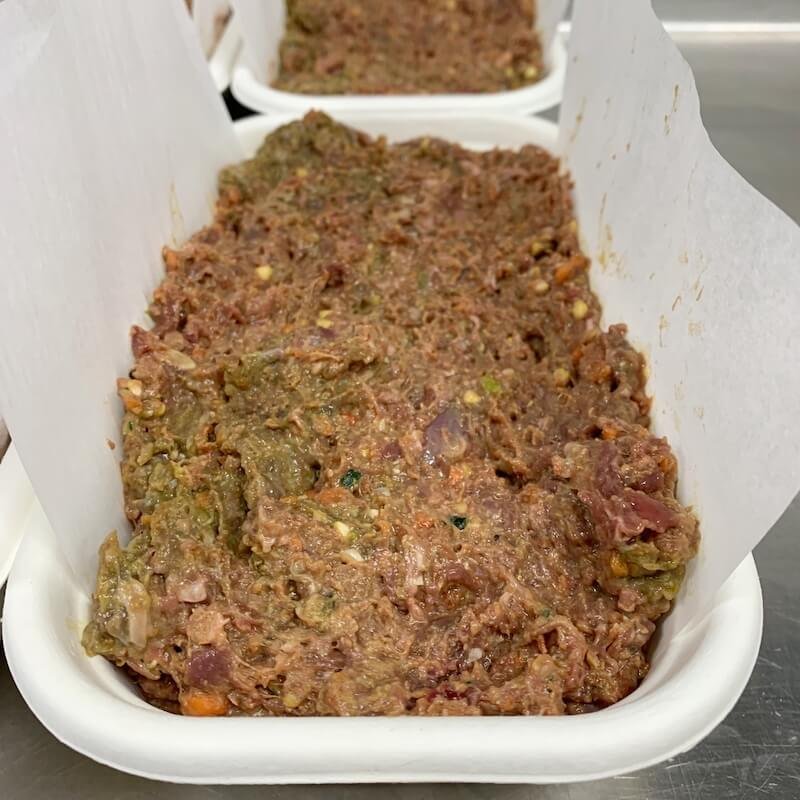Why Mineral Balance Is Essential For Puppies
In This Article
Everyone knows that puppies need calcium in their diet for their bones. But in order for their bones to grow the calcium needs to be fed in proportion with another mineral - phosphorous. This relationship is called mineral balance, and it’s an essential but often overlooked element of a healthy puppy’s diet.
Balancing minerals is a key requirement for optimal health in your dog. Without the proper balance some minerals won’t be absorbed from the diet, which can lead to serious health problems over time. It’s a little tricky, but really worth getting right!
What are minerals?
Minerals form the main structural component of your dog’s bones, muscles and organs. They also help regulate hormone and metabolic functions, and are involved in the production of energy.
There are two types: macro and trace. The macro minerals are calcium, phosphorous, magnesium, potassium, sodium and chloride. These are required in higher levels in the diet. Trace minerals are iron, copper, zinc, manganese, selenium and iodine. These are also essential but in smaller quantities.
A lack of minerals is called a deficiency. Symptoms of a mineral deficiency can present as skin issues, a rough coat, or dull eyes. Looking at the list of what minerals are involved in, you can imagine that not having enough can cause some pretty big problems.
Mineral deficiencies can cause:
Fractured bones
Stunted growth
Kidney failure
Poor coat or hair loss
Weak immunity
Something to note is that deficiency symptoms may not immediately obvious, they can take time to exhibit. By the time you notice the problem it can be difficult to fix it long term. To complicate matters, blood testing is not completely reliable as it focuses more on toxicity than deficiency.
From our point of view it’s best to get it right from the start - with a great diet.
Why mineral balance is important
Minerals often work in pairs, with both being required for adequate absorption. The relative amounts of each mineral affects this absorbtion.
One way to think of this is like a see-saw with a mineral on each side. Too much or too little on either side of the see-saw will create imbalance. This imbalance directly affects the absorbtion of both minerals in the pair.
The required relationship between minerals is closely related the ancestral diet of dogs. With a raw BARF diet you don’t need to worry too much about all the different pairs, but there is one big one which has a huge impact - especially for puppies.
Calcium & Phosphorous balance
The most important mineral balance is the ratio of calcium (Ca) to phosphorous (P). These are the most abundant minerals in the body, and in your dogs food. Due to their importance, it’s not surprising to find both Ca and P in the two main ingredients in a healthy dogs diet: meat and bone. Meat is high in phosphorous and low in calcium. Bone is high in both calcium and phosphorous.
Here’s why they are important.
Calcium is needed to grow bones and teeth. It regulates muscle contractions including the heart, and is required for healthy blood clotting. Phosphorous is involved in the formation of bones, protein synthesis, maintenance of cells and energy production. Calcium affects the absorption of phosphorous.
If there’s not enough calcium in the diet the body will leach it out of the bones, causing serious skeletal issues. On the other side, excess calcium can also cause issues with bone mineralisation and growth. This is especially a problem in puppies.
The ideal ratio is about 1.3:1 - slightly more calcium than phosphorous. This balance ensures that these minerals are absorbed properly from the diet.
Growing puppies have specific calcium and phosphorus needs, so we are looking for the ideal amount of both as well as this ratio. By getting this right we set our puppies up for a lifetime of great health.
The key takeaway here is that puppies need to eat a properly formulated diet. Do not feed your puppy a diet with unbalanced minerals, it can cause them serious harm later in life. Use a properly formulated puppy recipe, or a commercial diet designed for puppies.
Food not supplements
It’s important that minerals are found in foods rather than from synthetically derived supplements. This is because the natural form of minerals is easier to absorb in the gut. Mineral supplements such as calcium citrate and calcium carbonate are commonly used in processed dog food, but they are not readily bioavailable.
It’s always best to get your nutrition from food.
How we balance our minerals
We formulate our food with a Ca:P balance of 1.3:1. We do this using organic chicken and sustainable sourced fish, which both contain bone. We balance the amount of calcium with phosphorous from ethically sourced animal proteins.
To be able to balance these ingredients properly we sent them to the lab for nutritional testing. This gives us the precise nutrient profile including their calcium and phosphous content. It allows us to be very confident that our food is carefully balanced for your dog.
We don’t use chicken for our hypoallergenic Buffalo & Fish recipe, as it can trigger itching for some dogs. Instead we use fish and a whole food calcium supplement that we make using egg shells. We collect the egg shells we use in our Kangaroo & Chicken recipe, turn them into a powder that’s almost 100% calcium.





